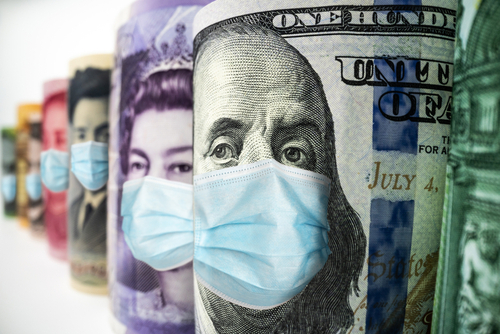United in action
Uncoordinated action in response to COVID-19 has resulted in new challenges that span the world and its economies. To overcome these issues, a series of measures – from making health a priority to thinking unconventionally about public interventions – could help global interests prevail
G20 members have reacted promptly and decisively to the adverse economic effects of the COVID-19 pandemic. Yet they have not done so in a coordinated way; the temporary lockdown in many G20 countries after March 2020 generated a government-led fall in supply accompanied by strong slowdowns in demand and rapidly rising unemployment.
These circumstances have engendered the deepest recession in recent history. Gross domestic product is expected to decline by 7% in the European Union and 2% in emerging countries. Economic fundamentals are pushing down asset prices, and the threat of financial instability has loomed large in past months. According to most forecasts, the recovery will be gradual rather than ‘V-shaped’, and output and employment levels are likely to return to pre-pandemic levels in about two years.
The EU, Japan and the United States acted promptly to avoid a hard landing for their economies, drawing on unprecedented public resources to fund public insurance mechanisms (such as unemployment benefits, health care and research spending) and propping up large parts of the private sector. Eurozone governance openly adjusted its long-standing penchant for fiscal austerity by publicly allowing significant flexibility on debt and deficits. Central banks injected large amounts of liquidity; financial markets have reacted positively since May 2020 and asset prices have recovered. However, the public financial system in several G20 members, such as Brazil, India and Indonesia, seems unable to carry out the twin tasks of managing the health crisis and financing the recovery.
The here and now
Economists and policymakers are clearly worried about the here and now, especially about potential adverse changes caused by the pandemic. Some of those changes concern the structure of the economy. Will some sectors fully recover or will the damage be long-lasting (for example, how will tourism be affected)?
Some concern employment. Will we see higher structural unemployment? Will new employment opportunities now emerging match the skills of currently displaced workers?
Some concern global market integration. Will the complex organisation of supply chains remain intact across the globe?
Some concern investor confidence. Despite large public interventions, will the private sector resume investing, given that medium-term prospects are linked to effective therapies and vaccines still being developed?
Some concern government revenues. Given the shift of economic activities to online platforms, and the current lack of a credible system to levy taxes on these activities, will developed countries witness a structural reduction in their tax intake?
Some concern poverty and inequality. Will countries making steady progress in reducing the number of poor households be able to continue doing so? The pandemic seems to be increasing inequality within countries, which has been rising since the 1980s. Higher inequality will affect the economic structure of some countries, and may well fuel future outbreaks of populist movements, thus threatening political stability. Economic growth requires social peace and political stability. Higher inequality is potentially damaging to both. One of the main challenges for the G20 will be to reduce poverty and inequality in ways that are compatible with market efficiency and thus produce equitable and sustainable growth.
To meet these challenges, G20 members should adopt the following measures. First, they should tackle the health crisis head on and reassure people that their health is a key priority. Countries that have opted for a laxer stance are paying a higher price in human lives and might very well see their recoveries delayed.
Second, G20 leaders should think unconventionally about the nature and purpose of public interventions. Direct cash payments to citizens and large infrastructural investments come to mind. For some countries, higher levels of borrowing might be justifiable given extremely low interest rates. With the low prospects of inflation rising quickly, tightly controlled monetisation could also be used when borrowing does not seem sustainable.
Third, the G20 should pay particular attention to social equity. A productive way of doing so would be to massively increase investments in human capital.
Finally, G20 members should work on policy coordination. Given the structural ineffectiveness of the International Monetary Fund and the World Health Organization as global political facilitators, the G20 could seize the opportunity and effectively become the sole global policy forum still on the playing field. It should act to prevent individual national interests from prevailing and producing collectively sub-optimal results in the long run.
Co-authored by:
Chiara Oldani
Chiara Oldani is a professor of monetary economics at the University of Viterbo ‘La Tuscia’ and the director of the G20 Research Group’s Rome office. Her research currently focuses on over-the-counter financial derivatives and the complex web of counterparty risk, widely considered a major precipitating factor of the global financial crisis in 2008.
Pietro Maffettone
Pietro Maffettone is a professor in the Department of Political Science at the University of Napoli Federico II. He received his MSc and PhD from the London School of Economics, where he was also a fellow in government. Before joining the University of Napoli he was a lecturer in global politics and ethics in the School of Government and International Affairs at Durham University.












